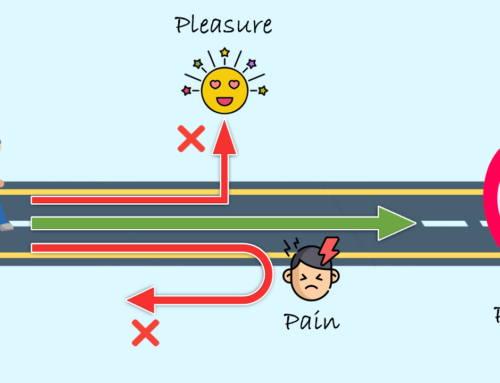When we strive to do anything in life, we naturally want to be successful. It is delightful when we succeed, and our capacity to persevere till we attain success is laudable.
Yet it’s important to recognize that how likely we are to be successful is dependent on how healthy our view of failure is. If we see failure as a nightmare that we must avoid at all costs, then that very fear of failure may well prevent us from doing many of the things that could have helped us grow.
Undoubtedly, failure is unpalatable, but it doesn’t have to be unbearable. To soften our experience of failure, we can turn to the wisdom of the Bhagavad-gita. The Gita (02.13) reminds us that we are at our core non-material beings. We can find the highest fulfillment not by achieving some external success but by staying steady amid life’s dualities (02.14). Thus, we can progress toward what the Gita calls immortal nectar (02.15): a deepened self-understanding whereby we realize and relish our spiritual identity (06.20-21) as precious, potent parts of an all-attractive divinity (15.07).
When we thus understand that our purpose is bigger than the mere attainment of success in reaching a particular external goal, then failure serves as a compass. It reminds us that we went on the wrong alley and we need to get back on track. From one perspective, going down that wrong alley may seem like a waste of time; yet from another perspective, that very journey helped us learn something more about the world, about our view of the world, and about ourselves. And all this learning contributes to, indeed even catalyzes, our growth toward greater wisdom.
Pertinently, the Bhagavad-gita (05.20) urges us to be neither dejected by failure nor elated by success, but to instead keep persevering as we manifest our dormant potentials and evolve into the best version of ourselves.
Summary:
Failure is a nightmare only for those whose goal is external success — for those whose goal is inner growth, failure is a compass and a catalyst.
Think it over:
- When does failure seem unbearable?
- When does failure not seem unbearable?
- How can Gita wisdom help us change our vision of failure?
***
05.20: A person who neither rejoices upon achieving something pleasant nor laments upon obtaining something unpleasant, who is self-intelligent, who is unbewildered, and who knows the science of God is already situated in transcendence.
Audio explanation of the article is here: https://gitadaily.substack.com/p/how-to-see-failure-positively

To know more about this verse, please click on the image


Leave A Comment